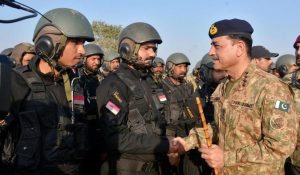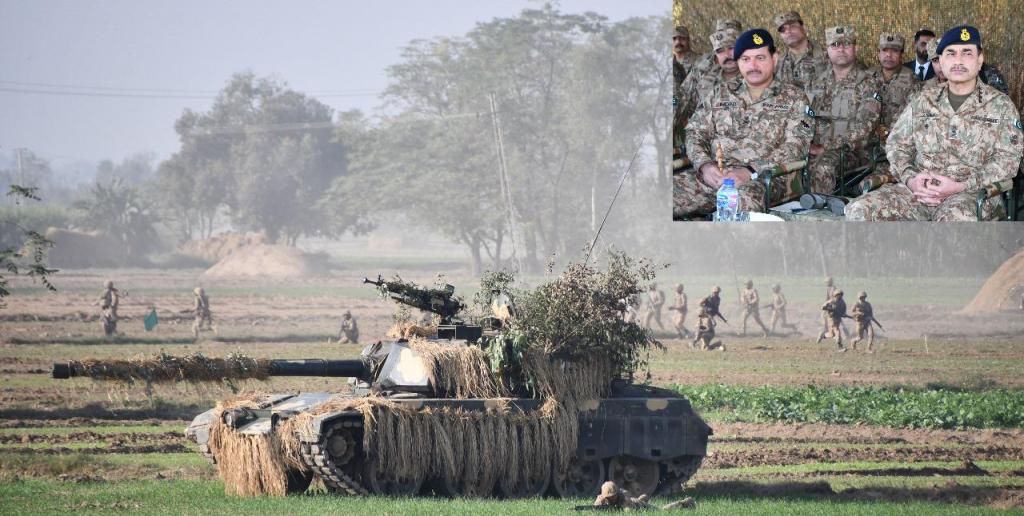Chief of the Army Staff (COAS), General Syed Asim Munir, NI (M), conducted a detailed visit to the troops engaged in a comprehensive field training exercise near Narowal and Sialkot.
The visit underscored the military’s dedication to enhancing its operational readiness and refining its ability to address evolving security challenges.
Upon arrival, General Munir was warmly received by the Commander Gujranwala Corps and the Inspector General of Training and Evaluation. He was given an extensive briefing on the exercise’s objectives, which focused on honing professional skills and battlefield procedures critical to modern warfare.
General of Training and Evaluation. He was given an extensive briefing on the exercise’s objectives, which focused on honing professional skills and battlefield procedures critical to modern warfare.
The exercise showcased the synchronized execution of advanced fire and maneuver operations by a range of specialized units, including Armour, Infantry, Mechanized Infantry, Artillery, Air Defence, Army Aviation, and Anti-Tank Guided Missile contingents. These drills were designed to simulate real-world combat scenarios and demonstrate seamless collaboration among various elements.
A notable aspect of the exercise was the integration of electronic warfare capabilities and information operations.
These strategies aimed to disrupt enemy communications, counter disinformation, and ensure dominance in the information domain—key components in the context of contemporary conflicts.
Spending the entire day alongside the troops, General Munir personally observed their drills and praised their exceptional training standards, operational preparedness, and high morale.
Addressing the participants, he emphasized the imperative of maintaining unwavering vigilance and preparedness to counter any threats posed by adversaries.

“The Pakistan Armed Forces, with the resolute support of the nation, are fully capable of safeguarding the territorial integrity and sovereignty of our beloved motherland against the entire spectrum of threats,” General Munir declared with conviction.
This visit not only highlighted the Army’s focus on readiness and modernization but also reaffirmed its commitment to protecting the nation’s sovereignty through robust training and strategic innovation.


